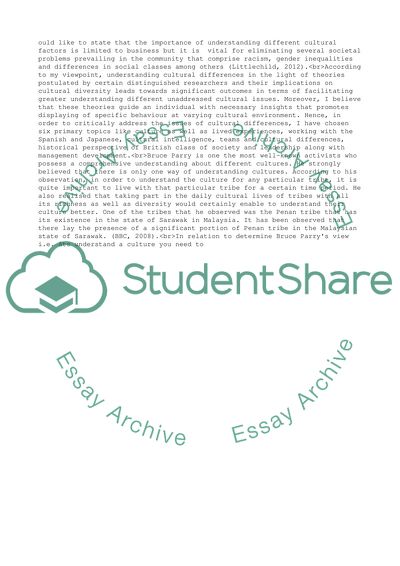Cite this document
(“Cultural differences Essay Example | Topics and Well Written Essays - 2750 words”, n.d.)
Retrieved from https://studentshare.org/business/1618237-cultural-differences
Retrieved from https://studentshare.org/business/1618237-cultural-differences
(Cultural Differences Essay Example | Topics and Well Written Essays - 2750 Words)
https://studentshare.org/business/1618237-cultural-differences.
https://studentshare.org/business/1618237-cultural-differences.
“Cultural Differences Essay Example | Topics and Well Written Essays - 2750 Words”, n.d. https://studentshare.org/business/1618237-cultural-differences.


